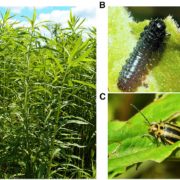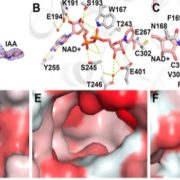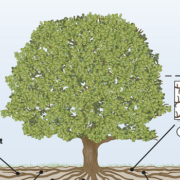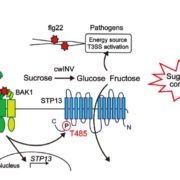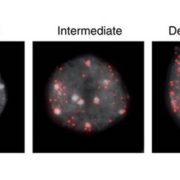An extracellular network of Arabidopsis leucine-rich repeat receptor kinases
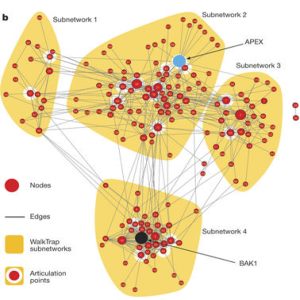 Nature. Through the activity of hundreds of membrane receptors, plants can sense the extracellular environment and tune their growth and responses to abiotic and biotic stimuli in an elegant and complex way. Despite their pivotal role, only a dozen of receptors have been characterized in plants and very limited is known about how they interact with each other to modulate their responses. In this pioneering study, Smakowska-Luzan et al. cloned and expressed in insect cell culture more than 200 Leucine-Rich Repeat Receptor Kinases (LRR-RK) from Arabidopsis thaliana and tested 40000 pairwise interactions. Among them, the screening allowed to identify 567 positive ones, therefore drawing a useful network map of LRR-RKs. Such a systematic approach led to “predict and validate the functions of uncharacterized LRR-RKs in plant growth and immunity” but, most importantly, represents a shift of knowledge towards a network biology approach in the field of membrane receptor kinases. (Summary by Marco Giovannetti) Nature. 10.1038/nature25184
Nature. Through the activity of hundreds of membrane receptors, plants can sense the extracellular environment and tune their growth and responses to abiotic and biotic stimuli in an elegant and complex way. Despite their pivotal role, only a dozen of receptors have been characterized in plants and very limited is known about how they interact with each other to modulate their responses. In this pioneering study, Smakowska-Luzan et al. cloned and expressed in insect cell culture more than 200 Leucine-Rich Repeat Receptor Kinases (LRR-RK) from Arabidopsis thaliana and tested 40000 pairwise interactions. Among them, the screening allowed to identify 567 positive ones, therefore drawing a useful network map of LRR-RKs. Such a systematic approach led to “predict and validate the functions of uncharacterized LRR-RKs in plant growth and immunity” but, most importantly, represents a shift of knowledge towards a network biology approach in the field of membrane receptor kinases. (Summary by Marco Giovannetti) Nature. 10.1038/nature25184


